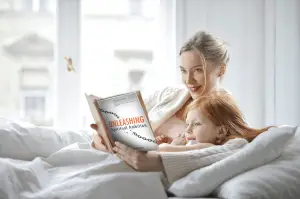Book Review: Culpability by [Author’s Name]
Have you ever stumbled upon a book that promises so much yet leaves you feeling a bit empty? That was my experience with Culpability. When I first skimmed through the blurb, I felt a rush of excitement; here was a narrative exploring the intricacies of family dynamics, set against the backdrop of a contemporary moral dilemma involving AI ethics. Little did I know, the journey through this tangled narrative would be less of a thrilling ride and more of a slow-motion crash.
The story revolves around the Cassidy-Shaw family, whose lives are turned upside down after their self-driving minivan is involved in a tragic accident that kills two people. The premise is tantalizing—how does one navigate the murky waters of blame when technology is the culprit? Yet, as we delve deeper, the narrative quickly veers off course. Instead of a robust exploration of AI ethics, we are unceremoniously guided through the characters’ internal struggles and secrets, overshadowing the compelling ethical discussions I so eagerly anticipated.
Each member of the Cassidy-Shaw family grapples with their own issues, and while this could have enriched the story, it often felt scattered and muddled. The teenage daughter, Alice, exhibits classic angst, fixated on an AI chatbot. Her interactions came across as somewhat clichéd, which is disappointing given the potential depth such a relationship could have offered. Meanwhile, Noah, our narrator and seemingly the family’s moral compass, left me frustrated. His insecurities and behaviors—like his disconcerting comments about his son’s girlfriend and his reckless drinking—made it challenging to empathize with him. His character’s arc, or lack thereof, felt surface-level, leaving me with a sense of lost potential.
The themes of culpability and responsibility are indeed intriguing, yet the execution is inconsistent. The narrative grapples with topics ranging from OCD to the critique of entitled youth, yet the weight of these discussions often feels diluted. Each theme competes for attention rather than weaving a cohesive tapestry, and this fragmentation detracts from the overall impact of the story.
That said, I have to give credit where it’s due: the mixed media elements sprinkled throughout the book added a refreshing layer, breaking up the text and making it easier to digest. Those moments of creativity stood out amid an otherwise uneven reading experience.
While Culpability may not hit all the marks I hoped for, it could still resonate with readers who appreciate family dramas steeped in personal conflict, even if the initial premise slips through the cracks. If you’re someone drawn to stories about flawed characters navigating complex moral landscapes, you might find something to appreciate here.
In the end, I walked away from the book with mixed feelings—an appreciation for its ambition, yet a longing for the deeper exploration it never quite delivered. Perhaps that’s the ultimate irony of Culpability: it leaves you pondering the very questions it raises, and while that can be frustrating, it’s undeniably thought-provoking too. Happy reading, and I hope your next book brings you as much insight as potential!
Discover more about Culpability on GoodReads >>






